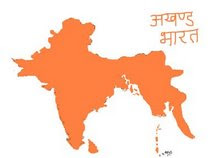Wednesday, June 10, 2009
Swami Vivekananda
Swami Vivekananda was the disciple of Ramakrishna Paramahansa. He founded the Ramakrishna mission to spread the teachings of his Guru throughout the world. One of the most famous and influential spiritual leaders of India, he sought to promote the philosophies of Vedanta and Yoga. Swami Vivekananda was the first spiritual leader of India who introduced Hinduism, Yoga and Vedanta at the World's Parliament of Religions.
Ramakrishna Paramahansa
Ramakrishna Paramahansa was one of the greatest religious leaders ever born in India. He believed that every individual must have only one aim in life i.e., the realization of the Ultimate Reality. To achieve this aim, one of the preconditions is the purity of mind. He also played a significant role in the Bengal Renaissance of the 19th century. His disciple, Swami Vivekanada, founded the Rama Krishna Mission after his demise, to propagate his teachings throughout the world.
Guru Nanak Dev
Guru Nanak Devji was the founder of one of the largest religions of the world, Sikhism. He was also the first amongst the ten Gurus of the Sikhs. He believed that there is only one God and we can reach him through any religion, be it Hinduism, Sikhism, Islam, etc. he was also a great poet as well as an excellent musician and could easily convince anybody through the power of his words.
Maharishi Mahesh Yogi
Maharishi Mahesh Yogi is the creator of the transcendental form of meditation, along with being the leader of the Transcendental Meditation Movement. One of the most renowned spiritual Gurus of India, he is highly influenced by the principles of Adi Shankaracharya. The main aim of Maharishi Mahesh Yogi is to promote the use of the Vedic ways in daily life.
Dayanand Saraswati
The founder of Arya Samaj (the Society of Nobles), Swami Dayanand Saraswati was one of the greatest religious leaders ever born in India. He was responsible, to some an extent, in bringing back the age-old teaching tradition of 'Gurukul'. He advocated for the equal right of women and condemned practices such as untouchability, animal sacrifice, idol worship, etc.
Adi Shankaracharya

Adi Shankaracharya was the first philosopher who consolidated Advaita Vedanta, one of the sub-schools of Vedanta. He believed in the greatness of the holy Vedas and was a major proponent of the same. Not only did he infuse a new life into the Vedas, but also advocated against the Vedic religious practices of ritualistic excesses. He founded four Shankaracharya Peethas in the four corners of India, which continue to promote his philosophy and teachings. Adi Sankaracharya biography reveals that he was also the founder of Dashanami monastic order and the Shanmata tradition of worship.
A. C. Bhaktivedanta Swami Prabhupada (1896–1977)
Unlike the previous two saints, Bhaktivedanta Swami initially had little apparent success in India. Born into a traditional Bengali Vaishnava family, he became a follower of Gandhi. He entered householder life and was deeply affected when he met his spiritual master, who instructed him to preach the message of Chaitanya in English. He later took sannyasa and at the age of 70 begged passage to New York on a cargo ship. Despite obscurity and poverty, he established ISKCON, which became perhaps the most successful of all the new Hindu-related movements springing up in the 1960s. Bhaktivedanta Swami, known affectionately as Srila Prabhupada, established over 100 ashrams worldwide, and translated more than 70 Vedic texts into English. He passed away in 1977, having established a governing body of his senior disciples to manage the movement after him. He emphasised the practice of devotion to a personal God, in the form of both Radha and Krishna, and the chanting of the now-famous Hare Krishna mantra.
Subscribe to:
Comments (Atom)
